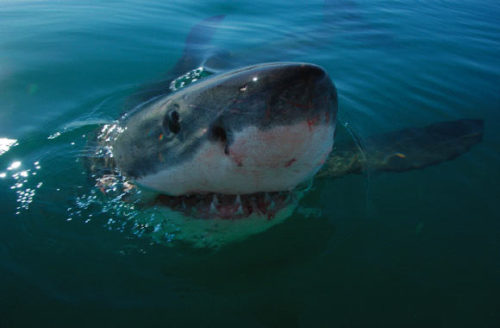griseus:EXTREME LONGEVITY IN GREAT WHITE SHARKS IS A REALITYSharks are long-lived animals that grow
griseus:EXTREME LONGEVITY IN GREAT WHITE SHARKS IS A REALITYSharks are long-lived animals that grow slowly and do not produce many young. In many parts of the world they are fished commercially, requiring age and growth data for conservation and management efforts.Validation of age in shark species is also critical in understanding their longevity as well as in estimating vital rates such as age at maturity, lifetime fecundity or fertility, growth rates, and differences in growth between males and females.Sharks are typically aged by counting alternating opaque and translucent band pairs deposited in sequence in their vertebrae. It is unclear whether these band pairs are deposited annually, making it difficult to accurately estimate age or provide estimates for longevity for many shark species.In the first successful radiocarbon age validation study for adult great white sharks (Carcharodon carcharias), scientists from NOAA analyzed vertebrae from four females and four males caught between 1967 and 2010 in the Northwest Atlantic Ocean.Age estimates were up to 73 years old for the largest male and 40 years old for the largest femaleAssuming a lifespan estimate of 70 years or more, great white sharks may be among the longest-lived cartilaginous fishes.Photo: Great White Shark bySave Our Seas and Photomicrographs of sectioned vertebrae by Hamady et al.More: Sci- NewsReference (Open Access): Hamady et al. 2014. Vertebral Bomb Radiocarbon Suggests Extreme Longevity in White Sharks. PLoS ONE -- source link
Tumblr Blog : todropscience.tumblr.com

